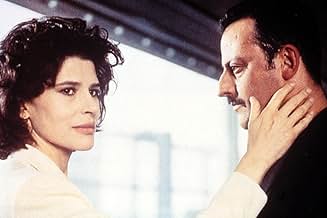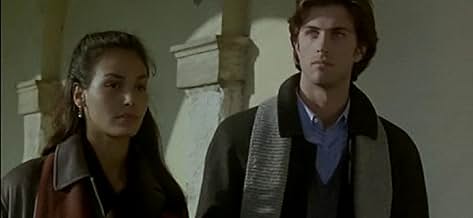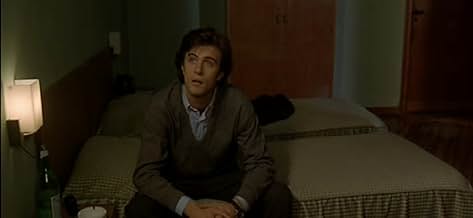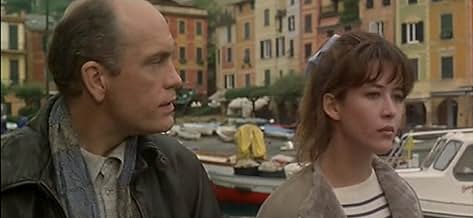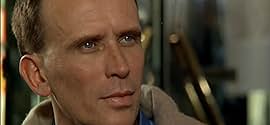IMDb RATING
6.4/10
6.3K
YOUR RATING
Four stories about short or long relationships between men and women in Italy and France.Four stories about short or long relationships between men and women in Italy and France.Four stories about short or long relationships between men and women in Italy and France.
- Awards
- 3 wins & 6 nominations
Kim Rossi Stuart
- Silvano
- (as Kim Rossi-Stuart)
Inés Sastre
- Carmen
- (as Ines Sastre)
Storyline
Did you know
- TriviaIn the original edited footage (which was more than two hours long) the sex scene between Peter Weller and Chiara Caselli was longer and showed the actor performing an explicit cunnilingus to the actress. It was Wim Wenders who asked Michelangelo Antonioni to cut that part. "The scene starts off well, but becomes unbearable when it doesn't end and at the end it heavily touches the limit of pornography," he said. In the Peter Weller's diary of working with Michelangelo Antonioni (included in Projections 12 book), the actor recalls how the director asked him in that scene to kiss Caselli's naked body from her breasts to below her navel, ordering him to continue further down, even when assistant director Beatrice Banfi and Antonioni's wife had intervened to prevent the scene from becoming pornographic. The 'cut' was yelled only after Weller put his mouth on the actress' crotch and kissed it for 15 seconds. At that time Weller was simultaneously filming Woody Allen's Mighty Aphrodite (1995) and thus had the opportunity to tell the New York director about the erotic-sexual performance that Antonioni had asked of him. "Woody looked at me rapt and wouldn't stop asking me for details. I don't know how many times he got the story repeated," Weller said.
- Alternate versionsThere are two slightly different versions of the movie, the difference ocurring at the end. The US version of 'Beyond The Clouds' (Al di là delle nuvole, 1995) lacks the complete voice-over narration by John Malkovich's character at the end of the movie, from the moment he enters the hotel until the last image, before going to credits. The only line heard is: 'The director's profession is very peculiar...'; whereas the European cut of the movie contains a longer narration, also starting with the same line, but expanding until the last image before fading to credits. The voice-over talks about how the director's profession is to find images, only to discover another image beneath the previous one which is more faithful to the truth, and then another, and another, until you reach the one which equals reality, the one no one will ever see. Both versions are equally powerful in their own right, though it's interesting to note such a minor difference was made in the first place. Both versions are available, the US version was released in DVD, and the European version is available in VHS only.
- ConnectionsFeatured in To Make a Film Is to Be Alive (1995)
- SoundtracksUnknown Love
Written by Lucio Dalla and Robert Sidoli
Performed by Giuseppe D'Onghia (as Beppe Donghia) (piano) and Lucio Dalla (clarin)
Featured review
A summing up of all the aging, ailing Antonioni's career themes, strengths (visual beauty, a sense of mystery and poetry) and weaknesses (pretentious stiff dialogue, ideas that are sometimes not really all that deep, a penchant for getting beautiful actresses undressed without a lot of justification).
But this is also something quite different than he's ever done, in that these are a series of short stories, loosely tied together by sequences of John Malkovich playing a director looking for his next film (Wim Wenders helped the physically limited Antonioni by directing the Malkovich sections).
By keeping the pieces smaller, I found this more fun, and more moving than most of Antonioni's films. There isn't the chance for the ideas to run as thin, and there seems to be more empathy for his characters now. Humans may be screwed up, but at least Antonioni no longer stands above them judging. One moment actually brought me near tears. The film captures the lonely enigmatic solitude of the artist, and of life itself.
But this is also something quite different than he's ever done, in that these are a series of short stories, loosely tied together by sequences of John Malkovich playing a director looking for his next film (Wim Wenders helped the physically limited Antonioni by directing the Malkovich sections).
By keeping the pieces smaller, I found this more fun, and more moving than most of Antonioni's films. There isn't the chance for the ideas to run as thin, and there seems to be more empathy for his characters now. Humans may be screwed up, but at least Antonioni no longer stands above them judging. One moment actually brought me near tears. The film captures the lonely enigmatic solitude of the artist, and of life itself.
- runamokprods
- Feb 17, 2011
- Permalink
- How long is Beyond the Clouds?Powered by Alexa
Details
Box office
- Gross US & Canada
- $31,738
- Opening weekend US & Canada
- $12,596
- Dec 5, 1999
- Gross worldwide
- $31,738
- Runtime1 hour 50 minutes
- Color
- Sound mix
- Aspect ratio
- 1.66 : 1
Contribute to this page
Suggest an edit or add missing content


